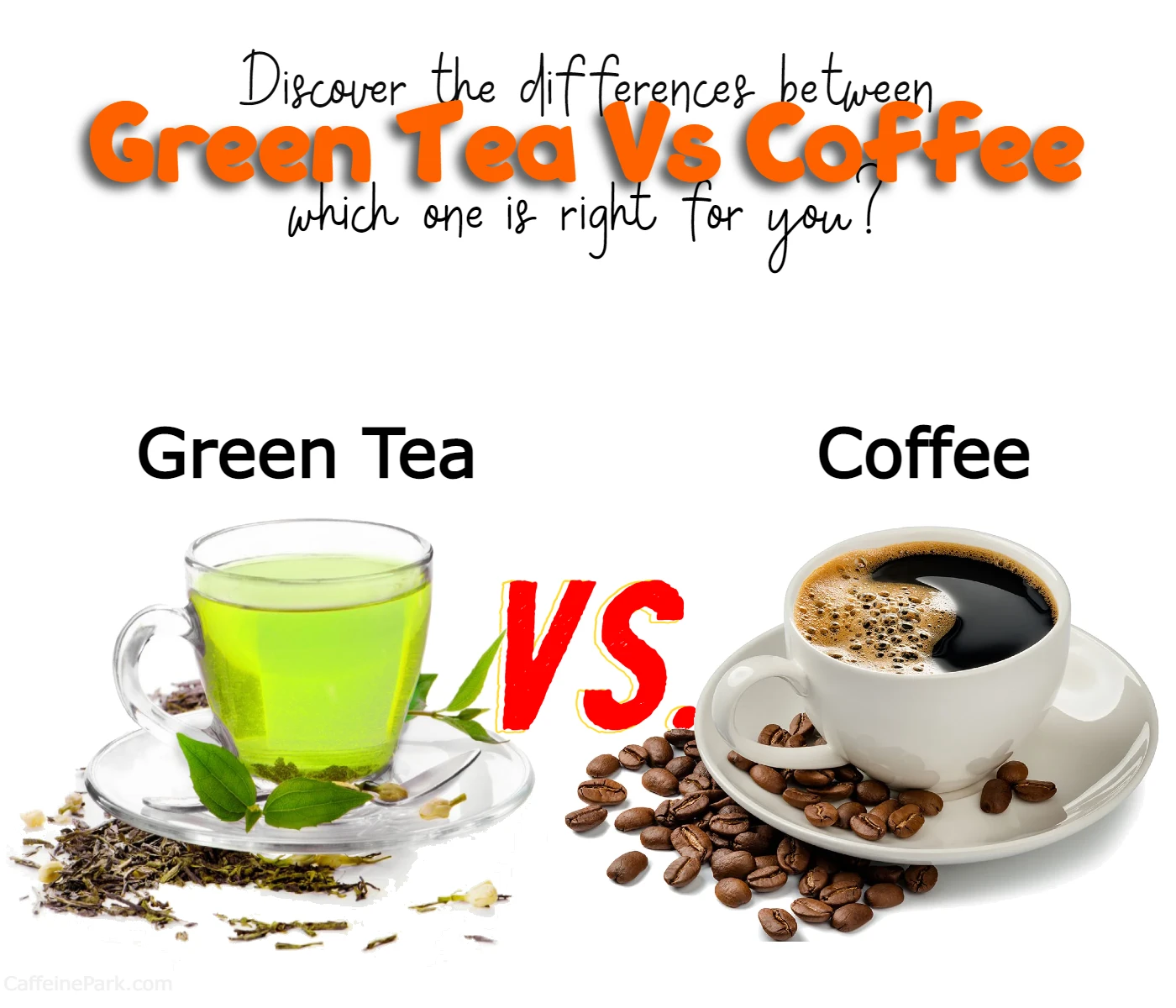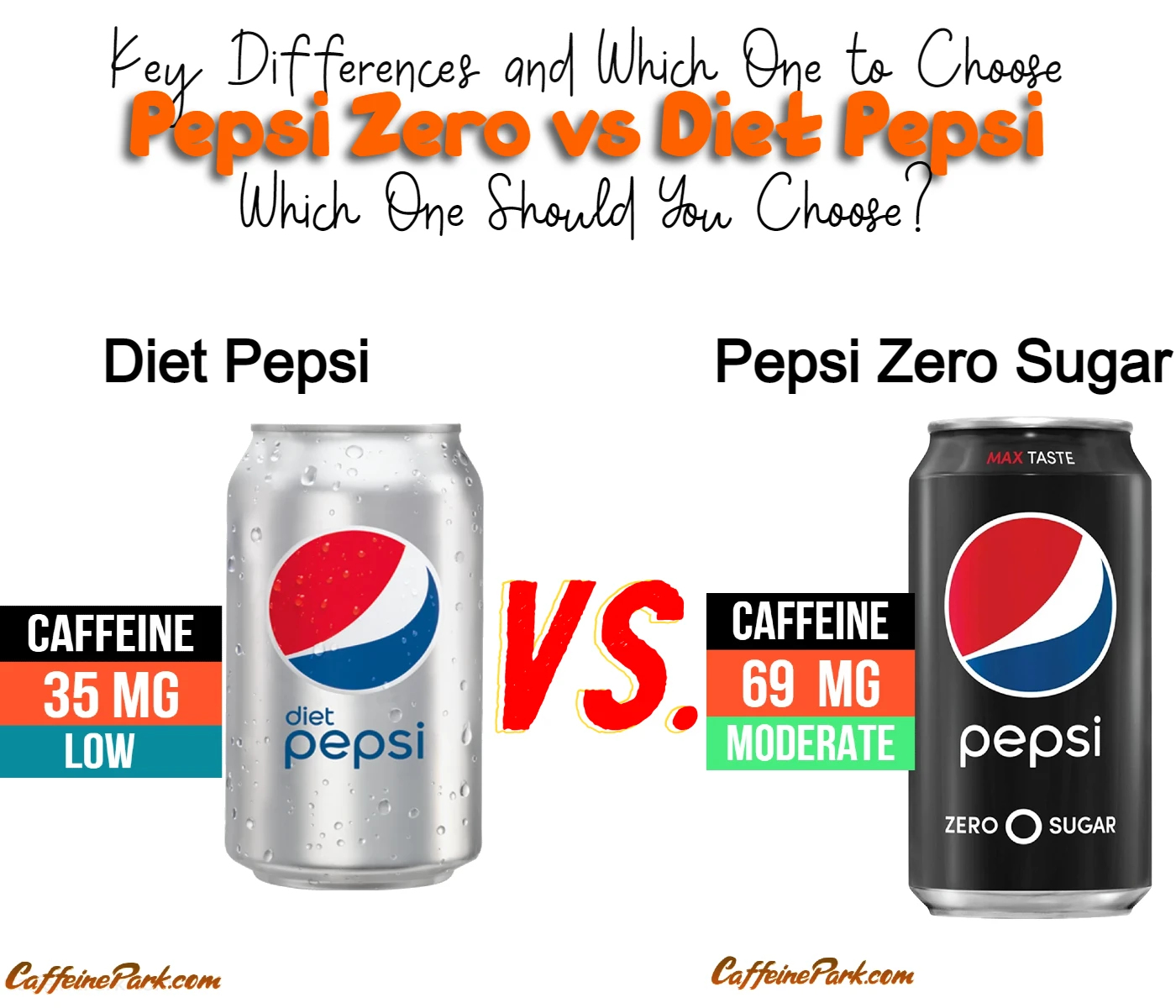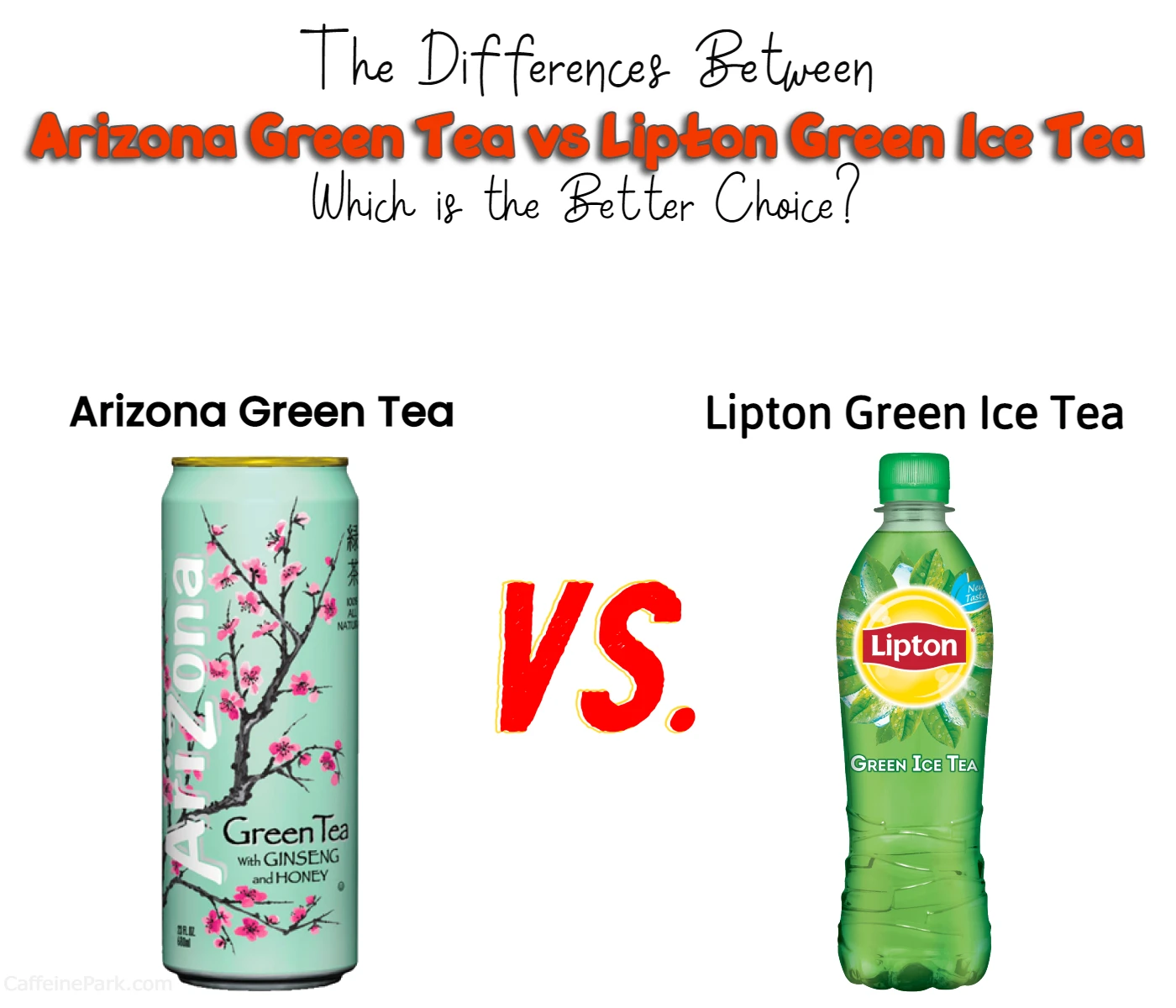
Are you a coffee drinker or a green tea lover? While both beverages are popular around the world, they have distinct differences in taste, caffeine content, and health benefits. In this blog post, we’ll explore the differences between green tea and coffee, so you can decide which one is right for you.
First, let’s talk about taste. Green tea has a mild, slightly sweet flavor with a grassy or vegetal taste, depending on the type of green tea. On the other hand, coffee has a bold, bitter flavor with a hint of sweetness or acidity, depending on the roast and origin of the beans. If you prefer a more subtle taste, you might prefer green tea, while those who enjoy a stronger flavor might opt for coffee.
Now, let’s discuss caffeine content. Green tea contains less caffeine than coffee, with an average of 20-50mg per cup, while coffee typically has 95-200mg per cup. This means that green tea can provide a more gentle energy boost without the jitters or anxiety that can come with consuming too much caffeine. However, coffee’s higher caffeine content can be beneficial for those who need a stronger energy boost to start their day or stay alert during long hours of work or study.
In the next section, we’ll dive deeper into the health benefits of green tea and coffee, so you can make an informed decision about which beverage is right for you. Read on to learn more!
Here’s a quick chart summarizing the differences between green tea and coffee:
| Green Tea | Coffee | |
|---|---|---|
| Taste | Mild, slightly sweet, grassy or vegetal | Bold, bitter, hint of sweetness or acidity |
| Caffeine content | 20-50mg per cup | 95-200mg per cup |
| Health benefits | Rich in antioxidants, aids weight loss, reduces risk of chronic diseases | Protects brain cells, increases energy levels, possibly reduces risk of certain types of cancer |
| Negative effects | None, unless consumed in excess | Jitters, anxiety, insomnia, addiction |
| Preparation | Steep tea leaves in hot water | Brew coffee beans in hot water |
| Availability | Widely available in tea bags or loose leaves | Widely available in ground beans or instant powder |
| Varieties | Green tea, matcha, jasmine, sencha, etc. | Arabica, robusta, espresso, latte, cappuccino, etc. |
Remember, the decision between green tea and coffee ultimately comes down to personal taste and preference, as well as individual health needs and caffeine tolerance.
Differences between Green Tea and coffee
What is Main deference?
The answer is that green tea has a milder taste and lower caffeine content than coffee. Green tea is also rich in antioxidants and has been linked to various health benefits, including improved brain function and reduced risk of chronic diseases. Coffee, on the other hand, has a bolder flavor and higher caffeine content, which can provide a more powerful energy boost, but can also lead to negative side effects such as jitters and anxiety. Coffee has its own unique health benefits, including protecting brain cells and possibly reducing the risk of certain types of cancer. Ultimately, the decision between green tea and coffee comes down to personal taste and preference, as well as individual health needs and caffeine tolerance.
Taste
The taste of green tea and coffee is very different, and this is the main reason why people tend to prefer one over the other. Green tea has a subtle, delicate flavor with a slightly bitter aftertaste. It has a grassy or vegetal aroma and is often described as having a refreshing taste. On the other hand, coffee has a bold, rich flavor with a strong, sometimes bitter aftertaste. It has a roasted aroma and is often described as having a robust taste.
Caffeine Content
One of the biggest differences between green tea and coffee is their caffeine content. Coffee contains a much higher amount of caffeine than green tea, with the average cup of coffee containing around 95mg of caffeine, while a cup of green tea contains only about 20-50mg of caffeine. This means that coffee can provide a more potent energy boost than green tea, but it can also lead to jitters, anxiety, and other negative side effects.
Health Benefits
Both green tea and coffee have been linked to various health benefits, but they differ in the specific ways in which they can benefit our bodies. Here are some of the key health benefits of each beverage:
Green Tea
- Rich in antioxidants: Green tea contains powerful antioxidants called catechins, which can help protect our cells from damage and reduce the risk of chronic diseases such as cancer, heart disease, and diabetes.
- Boosts brain function: Green tea contains a small amount of caffeine, which can help improve mental alertness, memory, and concentration.
- Aids weight loss: Green tea has been shown to boost metabolism and increase fat burning, making it a useful tool for those trying to lose weight.
- Lowers risk of stroke: Studies have found that drinking green tea can help reduce the risk of stroke, possibly due to its ability to improve blood flow and reduce inflammation.
Coffee
- Increases energy and alertness: Coffee is a powerful stimulant that can help improve energy levels and mental alertness, making it a popular choice for people who need to stay focused and awake.
- Lowers risk of Alzheimer’s and Parkinson’s: Studies have found that drinking coffee regularly can help reduce the risk of Alzheimer’s and Parkinson’s diseases, possibly due to its ability to protect brain cells.
- May reduce risk of cancer: Some studies have found that coffee consumption may be linked to a reduced risk of certain types of cancer, including liver, colon, and breast cancer.
- Protects liver: Coffee has been shown to protect the liver from damage caused by alcohol, fatty liver disease, and other conditions.
Preparation
Another difference between green tea and coffee is the way they are prepared. Green tea is typically steeped in hot water for a few minutes, then strained and enjoyed as is or with a little honey or lemon. Coffee, on the other hand, requires roasted coffee beans to be ground and brewed in hot water using a French press, drip coffee maker, or espresso machine.
Which one choose?
The decision between green tea and coffee ultimately depends on your personal taste and lifestyle. If you prefer a milder taste and want to enjoy a beverage with less caffeine, green tea might be the better choice for you. On the other hand, if you enjoy a bolder flavor and need a stronger energy boost, coffee might be more suitable.
It’s worth noting that both green tea and coffee have their own unique health benefits, so you might want to consider those as well when making your decision. If you’re looking to improve brain function, aid weight loss, and reduce the risk of chronic diseases, green tea might be the better option, as it’s rich in antioxidants and has been shown to have these benefits. On the other hand, if you’re looking to increase energy levels, protect brain cells, and possibly reduce the risk of certain types of cancer, coffee might be more beneficial.
Ultimately, the best approach is to try both beverages and see which one you enjoy more and which one makes you feel the best. It’s also worth noting that moderation is key when it comes to caffeine consumption, so be mindful of your intake and consider switching between green tea and coffee depending on your mood and energy needs.
Conclusion
Green tea and coffee are both delicious and have their own unique benefits. While green tea is known for its subtle flavor and lower caffeine content, it is also rich in antioxidants and has been shown to boost brain function and aid weight loss. Coffee, on the other hand, has a bold flavor and a higher caffeine content, making it a powerful energy booster and protector of brain cells. Ultimately, the choice between green tea and coffee comes down to personal taste and preference, but both can be enjoyed as part of a healthy diet and lifestyle.
FAQs
Both green tea and coffee have unique health benefits. Green tea is rich in antioxidants and has been linked to reduced risk of chronic diseases, while coffee has been shown to protect brain cells and may reduce the risk of certain types of cancer. Ultimately, the health benefits depend on individual health needs and lifestyle factors.
Coffee generally has more caffeine than green tea. A cup of green tea contains about 20-50mg of caffeine, while a cup of coffee contains about 95-200mg of caffeine.
Yes, you can drink green tea and coffee together, but it’s important to consider the total amount of caffeine you’re consuming. Too much caffeine can lead to negative side effects like jitters and anxiety, so it’s best to moderate your intake and listen to your body’s needs.
Both green tea and coffee have been shown to aid in weight loss. Green tea contains compounds that can boost metabolism and increase fat burning, while coffee can also increase metabolism and suppress appetite. However, it’s important to note that adding sugar or cream to coffee can negate its weight loss benefits.
To prepare green tea, steep tea leaves in hot water for 1-3 minutes, depending on the type of tea and desired strength. To prepare coffee, brew ground beans in hot water using a drip coffee maker, French press, or other brewing method.
Both green tea and coffee are widely available in various forms, including tea bags, loose leaves, ground beans, and instant powder. The availability may vary depending on your location and personal preferences.
Read More:
Source:
Here are the URLs for some reliable sources on the health benefits of green tea and coffee:
- National Institutes of Health: https://www.nih.gov/
- Harvard Health Publishing: https://www.health.harvard.edu/
- International Journal of Obesity: https://www.nature.com/ijo/
- American Cancer Society: https://www.cancer.org/





